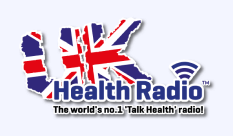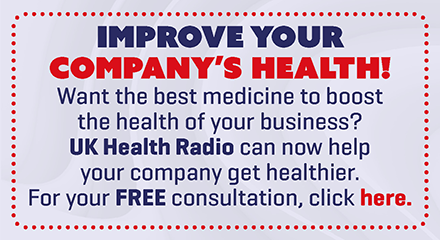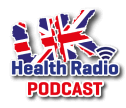The biggest myth & scientific deception in medical history!
A very big thank you to Dr. Demasi personally and ABC Television for allowing the use of this eye opening story, that urges us not only to re-evaluate Cholesterol.
“Earlier this year, a journalist by the name of Maryanne Demasi contacted me from Australia. She said she was interested in the whole cholesterol controversy and was planning a two part documentary for the Australian Broadcasting Company. Dr. Demasi (who has a PhD in medical reporting, and is an accomplished journalist with an extensive knowledge of health) told me that what got her onto the whole cholesterol story was a meeting she had with a renown Australian cardiologist—Dr. Ross Walker. Walker had told her, “I don’t treat high cholesterol. I treat heart disease”, and had proceeded to explain the difference.”
For the last four decades, dietary fat and cholesterol have been the villains in heart disease but now some medical experts are coming forward to challenge this medical paradigm. Dr Demasi follows the road which led us to believe that saturated fat and cholesterol cause heart disease, and reveal why it’s being touted as the biggest myth in medical history.
Dr Jonny Bowden ”I think it’s a huge misconception that saturated fat and cholesterol are the demons in the diet, and it is 100% wrong.”
Dr. Maryanne Demasi “The National Heart Foundation (Australia) guidelines are pretty clear. We’re told to reduce our saturated fat and cholesterol levels in order to reduce our risk of heart disease. But many doctors are now suggesting we need to radically rethink this approach.” Dr Jonny Bowden ”When you look at the data, it’s very clear – everything that we have been told about saturated fat and cholesterol is a bold-faced lie. It’s just not so. If you look at the ‘science’ that actually the dietary guidelines were based on, the early stuff was so badly done, so filled with confirmation bias, it would never even pass muster today.”
Dr Ernest Curtis ”During medical school, I was taught the same thing everybody else was – the importance of cholesterol and so forth – and I saw no reason to doubt it. But once I got into the cardiology field itself, I was seeing people with heart attacks that had cholesterol all over the place – high cholesterol, low cholesterol, the middle – it didn’t seem to matter. And at first I thought, ‘Well, OK, these are probabilities, so there will be exceptions.’ But it turned out that, after a while, I was seeing far too many exceptions. So that motivated me to go back and look at the origins of these theories. And, quite frankly, given the certainty with which we’re taught this, it surprised me to find out how poor the evidence was. It’s virtually non-existent.”
Dr Stephen Sinatra “I used to be the poster boy for the drug companies. And when I was Chief of Cardiology, I used to write for statins all the time. I really believed in the cholesterol theory of heart disease. I first became sceptical of the cholesterol theory in the mid-’80s. I was doing coronary angiograms. You know, you place a tube in the groin and it goes up into the heart, and you can see if there’s blockages there. Sometimes I would do the angiogram on a person with high cholesterol thinking I was going to find a lot of disease, and I… Many times, I didn’t find disease, and the converse was true. You know, I would do somebody with low cholesterol, and expecting not to find disease, and I found disease. So I was starting to think, ‘Maybe I don’t have this right. Maybe cholesterol is not the enemy we think it is.”
Dr. Maryanne Demasi “We’ve become so paranoid about cholesterol, we’ve actually forgotten it’s essential for life. It’s a major component of brain and nerve tissue, and central for the production of hormones. In fact, it’s so important that virtually every single cell in the body makes it.”
So where does this idea come from?
The idea that saturated fat clogs your arteries by raising cholesterol first gained traction in the ’50s. American nutritionist Ancel Keys became intrigued with the soaring rates of heart disease after World War II. According to Ancel Keys the facts are simple. He compared the rates of heart disease and fat consumption in six countries. It was almost a perfect correlation – the more fat people ate, the higher the rates of heart disease. Except, there was just one problem. Keys withheld data for 16 other countries. Later, when researchers plotted all 22 countries, the correlation wasn’t so perfect.
Dr Michael Eades is critical of the way Ancel Keys excluded countries that didn’t fit his hypothesis.
Dr Michael Eades ”He more or less cherrypicked countries. You could show just the opposite. You could show that the more saturated fat people ate, the less heart disease they had, if you cherrypicked the right countries.”
Dr Eades says that even if fat consumption trends in the same direction as heart disease, it doesn’t prove anything.
Dr Michael Eades ”Just because there’s a correlation, doesn’t mean that there’s causation. It’s like people who are fat have big belts, but that doesn’t mean that if you buy smaller belts, you won’t be fat. I mean, that’s not the causation. That’s what these observational studies show – it’s just a correlation.”
Dr Ernest Curtis ”The classic study by Ancel Keys is a textbook example of fudging the data to get the result that you want out of a study. And, unfortunately, there’s a lot of that that goes on.”
Science writer Gary Taubes says it’s all very well to have a theory, but in science you have to prove it. And they tried. Gary Taubes ”And over the next 15 years, researchers did trial after trial. There were probably a half a dozen of them between 1960 and 1975. All refuted or failed to confirm the idea that you could live longer by either reducing the saturated fat in your diet or reducing the total fat in your diet.”
The American Heart Association was also reluctant to lend credence to Keys’ theory. But then he managed to score a position on the Association’s advisory panel, where he pushed for the acceptance of his ideas, and it wasn’t long before they had a change of heart. Gary Taubes ”Instead of the data not being good enough to claim that dietary fat was a cause of heart disease, they concluded that the data were good enough, and, therefore, all Americans over the age of two should go on low-fat diets.”
As the idea gained widespread acceptance with the public, science was left to catch up.
Two ambitious trials, costing over $250 million, involving hundreds of thousands of patients, both failed to prove that lowering saturated fat could lower your risk of dying from heart attack. Gary Taubes ”The way the authorities responded to this was to claim that they must have done the study wrong. Instead of saying, ‘Hey, look, eating a low-fat diet doesn’t apparently do anything for people, or certainly not women,’ instead they respond by putting out press releases saying, ‘Look, we don’t know why this trial failed to confirm our hypothesis, but it doesn’t mean the advice we’ve been giving you is wrong, and it doesn’t mean that the hypothesis that dietary fat causes heart disease is wrong.”
The National Heart Foundation of Australia defends these failures, saying that nutrition trials are just too complex. Dr Robert Grenfell ”When you ask that question of ‘Do dietary fats increase heart disease?’, you’re sort of trying to negate all the other risk factors that, in fact, actually also cause heart disease. So, to imagine creating a study that would prove that conclusively is virtually impossible.”
Dr. Maryanne Demasi “So, if they can’t prove it, on what basis have they decided that saturated fat is bad for us?”
Dr Robert Grenfell ”Many analyses have, in fact, actually shown that, you know, we can say with convincing evidence that intake of saturated fats leads to an increase in blood cholesterol.
Dr. Maryanne Demasi “An extensive review of the literature showed that the data was highly inconsistent. In fact, there were many long-term studies that refute the idea that saturated fat raises cholesterol. So I approached the National Heart Foundation for further evidence. They said the data was complex. They cited one study which showed only certain types of saturated fat could raise bad cholesterol, but it also raised good cholesterol. In the end they concluded – ‘We agree that we are limited by the evidence base, available at this time.’
Australia’s leading lipid expert was asked what he thought. So, should we be giving people dietary advice if there is such poor adherence and the studies aren’t available?
Associate Prof David Sullivan ”I think there are some very telling pieces of evidence which have been used to establish the importance of avoiding saturated fat. If saturated fat is completely benign, if it’s actually beneficial, where’s the evidence in support of that? Where’s the evidence of an alternative cause? We are particularly keen to get some dietary advice, because otherwise what do we offer people?”
But Dr Curtis disagrees with giving people dietary advice when he believes the evidence is insufficient. He says diet has very little influence on your blood cholesterol in the long term. Dr Ernest Curtis ”The reason for that is that your body manufactures 80% to 90% of your cholesterol. Really, very little of it comes from the diet. Most people seem to have a genetically preset level for the cholesterol in their body, maybe in a range. But they’re generally going to seek to stay within that range. So, if somebody cuts all the cholesterol out of their diet, their body will simply start making a little bit more to bring it back up into the range.”
In the ’60s, British physician John Yudkin challenged Keys’ theory, claiming that sugar was the culprit in heart disease, not saturated fat. But Keys was politically powerful, and publically discredited Yudkin’s theory. Gary Taubes ”By the early 1970s, Ancel Keys was ridiculing John Yudkin and his theory in papers, and just on the basis of that sort of personality and political struggle, the nutrition community embraced this idea that saturated fat was the problem, working through dietary cholesterol, and began to think of the idea that sugar could cause heart disease as akin to quackery, and Yudkin was eventually ridiculed.” Keys won the diet war, helped by his rise to fame after appearing on the cover of Time magazine.
The most influential and respected investigation into the potential causes of heart disease was carried out in the town of Framingham, Massachusetts. It began in 1948 and is still going on today. It’s the longest observational study of its kind, involving over 5,000 residents. Dr Stephen Sinatra ”The Framingham data pointed out very early that certain habits, or what you did, like cigarette smoking or emotional stress, did point in the direction of heart disease. But then something happened. Some of these Framingham residents were living longer than others.”
Dr. Maryanne Demasi “When researchers went to look at the data 30 years later, they found that, after a certain age, it didn’t matter what your cholesterol level was.”
Cholesterol did correlate with heart disease, but that disappeared by the time you reached your late 40s.
Dr Jonny Bowden “After the age of 47, high cholesterol is probably protective. The people who had
the highest cholesterol lived the longest, much to the amazement of a lot of the researchers. The people who ate the most cholesterol, ate the most fat, actually weighed the less and were the most active.”
One of the Framingham researchers became so dismayed with the results, he wrote a scathing review of the whole diet-heart hypothesis, saying that people had been misled ‘by the greatest scientific deception of our times, the notion that animal fat causes heart disease’. Hundreds of articles refuting the cholesterol hypothesis have been published in the world’s leading medical journals, but they rarely get noticed by mainstream media.
In 1977, the US government stepped in. Senator George McGovern, an advocate of Ancel Keys’ theory, headed a committee hearing to end the debate once and for all. Eminent scientists at the time disagreed with the report. But their pleas fell on deaf ears.
Dr Michael Eades ”And they are the ones who really have put us in the nutritional mess that we’re in now, because based on virtually zero science, they decided that a low-fat diet was the best thing for us all.”
This led to the creation of the food pyramid, which formed the basis of our dietary advice in the following four decades. It advised us to eat less saturated fat, mainly found in meat and dairy, recommending a diet rich in carbohydrate foods, like breads, grains and cereals etc.
There is one diet that stands out from the rest – the Lyon Diet Heart Study, which touted the benefits of a Mediterranean diet. Remarkably, after several years, those on the Mediterranean diet had a whopping 76% less deaths from heart attacks.
Dr. Maryanne Demasi “So why the Mediterranean diet get such a spectacular result when all the others had failed? But one of the most interesting things to come from that study went virtually unnoticed.” Dr Jonny Bowden ”Here’s the part that nobody talks about. See, you think that in the group that had the double-digit reduction in heart disease, their cholesterol levels must have plummeted, right? Their cholesterol levels didn’t budge. Both groups had the same cholesterol levels, except one group just stopped dying. So, so much for the relationship between cholesterol and the risk for heart disease.”
But, contrary to popular belief, neither saturated fat or cholesterol deposit on the artery wall like sludge in a pipe. Nobody knows what begins the process, but damage on the artery wall causes inflammation. The body responds by recruiting cells to fix the problem. Tissue cells called macrophages clean up the debris, which consists of things like bacteria, calcium and cholesterol. A fibrous cap grows over the plaque, trying to conceal the inflammation. If the cap bursts, the plaque’s contents are released, and a clot may block the artery, after which a heart attack ensues. Because cholesterol is found in the plaques, it’s often blamed for causing it.
Dr Michael Eades ”If you go in and you do autopsies of people who’ve had coronary artery disease, and you cut open the coronary arteries, they’re filled with cholesterol. So it’s not a big leap to say, ‘Gosh, I shouldn’t eat that because it’s going to go right into there,’ but that’s not the way it works.”
Dr Sinatra says blaming cholesterol for causing plaques is like blaming firemen for causing fires, just because they’re always at the scene.
Dr Stephen Sinatra ”Cholesterol is really not the villain. I mean, we need it to live. The problem is cholesterol is involved in a repair process. Look, cholesterol is found at the scene of the crime, it’s not the perpetrator. And where I sit now, as a cardiologist, practising cardiology for over four decades, it’s very low down on my list of risk factors.”
Cholesterol is a waxy substance that doesn’t dissolve in the blood. So it has to be ferried around by proteins, mainly LDL and HDL. LDL is said to deliver cholesterol to the tissues, hence it’s bad, and HDL is said to remove cholesterol from plaques, hence it’s good.
Dr. Maryanne Demasi “What about the bad cholesterol?” Dr Stephen Sinatra ”You call it, the LDL, bad cholesterol? Well, you know, I don’t really call it bad unless it’s oxidised. Remember, if it’s oxidised, then it’s inflammatory.”
Dr. Maryanne Demasi “So cholesterol’s not bad, only if it’s oxidised.” Dr Stephen Sinatra ”Exactly. If the cholesterol is oxidised, if there’s free radical stress involved and it’s oxidised, that’s inflammatory and that starts the cascade for inflammation.”
Dr Stephen Sinatra ”Well, the inflammatory theory of heart disease I think is accepted more and more now. I think the general cardiovascular community is still focusing on cholesterol. They need to focus more on inflammation. Sugar is really the fall when it comes to cardiovascular disease. You see, we’ve placed all this emphasis on cholesterol, we’ve taken it off sugar, and that’s the problem. Then you’re getting more insulin responses, and we know that insulin is the number one indicator for inducing what we call inflammation of blood vessels.” Dr Jonny Bowden ”Sugar is far more damaging to the heart than fat ever was, and we’re beginning to see this now. So, this focus on cholesterol has been incredibly destructive because we haven’t looked at these real promoters of heart disease – inflammation, oxidative damage, sugar in the diet, and number one with a bullet – stress.”
Dr Grenfell says these theories are untested but plausible.
Dr Robert Grenfell ”These are still hypothetical questions that need to be answered about why does high blood pressure cause damage to the artery walls. I mean, these are all fantastic ideas, and how fantastic it would be if we found that there were simple ways of preventing heart disease by lowering our body’s inflammatory response, and also its enthusiasm, to, in this hypothesis, to heal itself, or to heal holes in the arteries.”
Dr. Maryanne Demasi “So it’s also plausible that maybe cholesterol isn’t the driving factor in this process?”
Dr Robert Grenfel l ”It’s a contributor.”
Dr Sullivan does concede that an aspect of the food pyramid was a mistake. He says replacing fats with carbohydrates didn’t help the rising obesity problem.
Dr David Sullivan ”If you replace fat with carbohydrate, you will probably be a little bit more inclined to be hungry; your insulin levels will be a bit higher, you’ll have high levels of triglyceride, higher levels of glucose and less of your good cholesterol to avert problems. We certainly probably gave some advice which was a good way to avert one pathway, but people then tracked down another pathway, and that’s what’s led to the revision of dietary guidelines.”
The more recent advice is to replace saturated fat with unsaturated fats in order to lower the risk of heart disease. For example, swapping butter with margarine.
But this advice still receives its fair share of opposition. Dr Jonny Bowden ”Margarine is the perfect example of the stupidest nutritional swap-out in history. We had this trans fat-laden crappy manufactured product that we were eating because we were so phobic about saturated fat and cholesterol.” Dr Stephen Sinatra ”To switch to polyunsaturated fats with the vegetable oils, that’s horrific advice. The polyunsaturated fats, the vegetable oils, these omega-6 oils, are inflammatory because they’re very prone to oxidation.”
Dr. Maryanne Demasi “Have we been given the wrong advice?”
Dr Michael Eades ”We’ve absolutely been given the wrong advice. People became afraid of saturated fat, so they said, ‘OK, we’ve got to do something to replace the saturated fats, and so let’s do it with vegetable oils.’ Well, vegetable oils don’t have the same cooking qualities that saturated fats do. Polyunsaturated fats have a lot of double bonds in them, and double bonds are prone to free radical attack. It becomes a rancid fat, and it becomes really bad for you. Saturated fats, on the other hand, have no double bonds. That’s why they’re incredibly stable. That’s why they’re great for cooking. That’s why they’re great for frying. And that’s why they don’t really perpetuate free radical cascades in the body, because they’re inert fats.
Dr Eades says butter and coconut are not harmful to your health, and recommends those fats over the omega-6 vegetable oils. When vegetable oils are used to manufacture margarine, they undergo a process called partial hydrogenation, which results in the formation of industrial trans fats, and everybody agrees they’re bad for you. It’s important to look for products that have them removed, although Australia doesn’t have mandatory labelling of them. Junk food, for example, is riddled with industrial trans fats. The omega-3s, another type of polyunsaturated fat – found in fish, for example – are thought to counter the inflammatory effects of omega-6s.
Dr Michael Eades ”The two of them are kind of like the accelerator and a brake pedal on a car, and if they’re in balance things operate smoothly. I mean, you don’t want too much anti-inflammatory, you don’t want too much pro-inflammatory. Because of the advent of vegetable oils, we now have tons of omega-6 fats, and, really, very little omega-3 fats.”
This is thought to be why the Mediterranean diet was so successful. It was higher in omega-3 fats, not to mention it was low in refined carbohydrates like sugar, and rich in antioxidants.
Dr Robert Grenfell ”The Heart Foundation still suggests that a diet that substitutes saturated fats for polyunsaturated fats is one that is healthier for your heart.”
But opposition to this advice is still palpable. Dr Stephen Sinatra ”It took decades to really entrench this myth. It’s probably going to take a few more decades to get us out of this myth. But to vilify saturated fats I think is one of the worst things the medical profession has done.” Dr Ernest Curtis ”I’d love to see the medical establishment saying, ‘Whoops, we were wrong’. That’s not going to happen. Frankly, that generation is going to have to die off, and perhaps the generation coming up can do better.”
Dr Stephen Sinatra ”We created this new disease called hypercholesterolaemia. And if we created this new disease, we got to create drugs to neutralise it. Are there corporations and billions of dollars and money behind this? Absolutely.”
Over 40 million people worldwide take drugs to lower their cholesterol. But now there’s evidence that the majority of them won’t benefit.
The ’80s saw the debut of a new weapon in the battle against heart disease – a novel class of drugs called ‘statins’ that lowered cholesterol like no other medication before them.
But the reality is – lowering your cholesterol with medication doesn’t guarantee you won’t have a heart attack. Professor Rita Redberg ”The marketing concentrates on the fact that you can lower your cholesterol as if that was the end in itself, which it is not. Cholesterol’s just a lab number. Who cares about lowering cholesterol unless it actually translates into a benefit to patients?”
Over the decades, drug companies have had an enormous vested interest in statin drugs.
Dr Ernest N Curtis ”It’s the most profitable group of drugs in the history of the world. Something like $15 to 25 billion, with a ‘B’, per year, spent on these drugs. So that’s higher than the gross national product of many countries around the world.”
Dr John Abramson ”Lipitor is the bestselling drug in history. So in terms of cost, total sales of Lipitor have been in the range of $140 billion since it came on the market in 1996.”
Statins work by disabling a critical step early in the formation of cholesterol. Dr Jonny Bowden ”There’s a pathway that produces cholesterol in the body. You could think of it like a tree. So, we’ve decided collectively that one of the branches of this tree is bad, meaning cholesterol. So we’ve decided that the best way to get rid of that branch is to cut the tree off at the root.”
Statins inhibit this enzyme, which is also required for essential molecules like Coenzyme Q10. Nutritionist Dr Jonny Bowden says CoQ10 is essential for optimal heart muscle function. Dr Jonny Bowden ”This is partly, we believe, why so many side effects have to do with lack of energy, muscle pain – because Coenzyme Q10 is so vital. So what’s the irony of giving people a drug to reduce something that probably doesn’t even have that much to do with heart disease, that also reduces one of the molecules that’s most necessary for heart health? How insane is that?” Dr John Abramson ”It’s assumed that the cholesterols a toxic substance in your body and getting it as low as you can is a good thing. Well, cholesterol is the organic molecule that’s most common in your brain, by weight. It’s in every cell wall. It’s the precursor of many of the hormones in our body. It’s an enormously complex molecule. And to think that you can radically pull this out of the body and not have consequences is just… it’s ridiculous, it’s such bad science.”
Professor Rita Redberg is a world-renowned cardiologist. She says, barring a genetic condition, the only people who live longer by taking a statin are those that have already had a heart attack or stroke.
Professor Rita Redberg ”One or two people in a hundred will benefit from taking a statin. What people don’t understand is that means the other 98 will get no benefit at all. It’s not going to reduce their chance of dying.”
But this hasn’t limited their use. These drugs are now being widely prescribed to relatively healthy people – those without diagnosed heart disease. And Dr Redberg warns most of them won’t benefit. Professor Rita Redberg ”For healthy people, even people that have a lot of risk factors. So they might have high blood pressure, they might smoke, they might have diabetes. The data is not there to suggest that those people are better off taking a statin. No, I don’t think it’s a wonder drug.”
But Dr David Sullivan disagrees. He says all the risk factors should be considered equally, including cholesterol. Assoc Prof David Sullivan ”If you want to mount these arguments about not treating the cholesterol, you’ve got to take the responsibility of saying it’s not necessary to treat these other risk factors either. I would certainly encourage people who are considering cessation of treatment for perceived side effects and so forth to discuss it with their doctor.”
Dr John Abramson ”People are more than their cardiovascular system, and what we really want to do is improve people’s overall health, longevity and the risk of serious illness. If you look at overall health, we haven’t done anything for them. Now, do people want to take a statin to trade one cardiovascular event for some other very serious illness – in other words, no net benefit – and expose themself to the risk of harm from the statins? Do you want to do that? I think it’s a bad deal. If somebody has a particular fear of heart disease and says, ‘Look, I don’t care if I get diabetes, I don’t care if I have muscle symptoms, I don’t care if I can’t exercise the way I want to exercise, I do not want to have heart disease,’ fine, take a statin. But understand that that’s why you’re taking a statin, not because it’s going to improve your overall health.”
Dr Golomb has scrutinised the data, and she’s even more sceptical about the value of these drugs, especially in women.
Professor Beatrice Golomb ”Right now the evidence has not supported benefit to women, even if they have heart disease, in terms of mortality and all cause morbidity. It has not shown benefit to elderly, even if they have heart disease. In fact, in the 4S trial, there was a 12% increase in mortality in the women in that group who were assigned to statin rather than placebo. So the evidence really doesn’t support that the benefit is the same for women and for men. And on top of that, women are at higher risk of complications from statins.
Dr Maryanne Demasi ”Should women take cholesterol-lowering medication?” Professor Beatrice Golomb ”In general, no. Now there may be exceptions. Medicine actually does have an element of art. And if women are from a family with severe familial hyperlipidaemia, where a lot of people are dying from heart disease in their 30s and 40s, that’s a group where I would say there is an art.”
There are now calls for patients to give written consent before taking a statin. Professor Beatrice Golomb ”If you do plan to give statins to women, to elderly, to people at low risk, they should sign a consent form saying they understand that they’re receiving a drug that will not extend their life, but will only shift the cause of death. I think patients have a right to know that before they agree to take on a medication.”
The National Heart Foundation of Australia agrees that people are being prescribed statins unnecessarily. Dr Robert Grenfell ”I would agree that there are people in Australia today who are being treated for cholesterol where their cardiovascular risk is not high. And you have to question whether they should in fact actually be on that.
A report estimated around 75% of people taking statins are in the low to moderate risk category, and, according to these researchers, that means up to 30 million people are taking a drug that won’t offer them the benefit of living any longer.
Statins have a long list of side effects – like muscle weakness, memory loss, and, in rare cases, a potentially fatal condition called rhabdomyolysis, where muscles break down and cause kidney failure.
The CTT collaboration, for example, use mostly drug company data, and report very low levels of muscle side effects from statins. But when you look at the side effects in the general population, it’s 100 times higher.
Dr John Abramson Are the trials lying? No. I just don’t think they ask the right questions. Why don’t they ask the right questions? It’s not in the interest of the drug companies to ask the right questions. So, it’s creating the impression that the drugs are safe.
Another complication with clinical trials is that drug companies don’t recruit volunteers that reflect the typical patient on statins. Dr Robert Grenfell ”The problem with the study design is that we exclude people with chronic disease or other comorbidities. We exclude people who are very old or very young, and we’ll certainly exclude people with other types of risk factors or diseases that may interfere with the metabolism of the drug. So we often get a skewed picture of what the side effect profile is.” Professor Beatrice Golomb ”The fraction of people with problems in my sort of real-world, on-multiple-medications, etc clinic is far higher. And I would say that in that sample it really seems in the order of a third of patients that develop problems.” Professor Rita Redberg ” There are a lot of ways that one can manipulate data in a trial. Trials do what they call a washout period, and what that means is before they choose the people that are going to be in the trial, they give everybody the drug, and the people that have side effects get excluded from the trial. And they say that so people aren’t uncomfortable when they are in the trial. But of course it takes out all the people that have side effects, and that’s very commonly done in drug trials.”
Dr Maryanne Demasi ”So the side effects would be grossly underestimated. ” Professor Rita Redberg ”Yes, it would definitely grossly underestimate the number of people that have side effects. They’re not as safe as they’re made out to be, no.”
Even the definition of ‘high cholesterol’ keeps changing. In 2004, a US panel of experts decided to lower the threshold of cholesterol, which sparked outrage amongst many doctors. Professor Rita Redberg ”More and more people think they have high cholesterol even though they don’t have high cholesterol.”
By changing the definition, it meant that millions more people became eligible for statins, and these thresholds were adopted by many countries around the world. Dr Ernest N Curtis ”Has this been on the basis of any scientific data? Absolutely not. Absolutely not, no evidence whatsoever, just the theory that less is better. You’re creating more patients, you’re creating more people who now have something to worry about where they didn’t have anything before.”
But Dr Sullivan insists this was a good decision.
Assoc Prof David Sullivan ”I think what we actually started off with was maybe appropriately conservative targets which were really not in the patients’ best interest. So the likely outcome is a further reduction in targets.” Dr Maryanne Demasi ”More cholesterol lowering.” Assoc Prof David Sullivan ”Yep, I think that’s absolutely to be expected.”
Dr Maryanne Demasi ”The decision to lower the threshold of cholesterol was a controversial one. An investigation into the matter revealed eight out of nine panel members had a direct conflict of interest after declaring financial ties to the companies that manufactured statins.”
The push to lower cholesterol in the wider population continues.
Dr Maryanne Demasi ”A group of doctors published an article claiming that statins could counter the effects of eating a burger. They suggested that statins be handed out as free condiments, just like ketchup.” Professor Rita Redberg ”Because it gives people that false reassurance that it’s OK if you eat this food that is not good for your health, because then you’re going to take this pill that is going to make it OK. And that’s very attractive, but it is a fallacy, it’s just not true. And it’s still bad for your health to eat processed foods, eat trans fats and have a regular diet of fast food hamburgers.”
Dr Maryanne Demasi ”And the absurdity doesn’t stop there. In the US, it was even suggested that statins be put in the public water supply.”
Dr Ernest N Curtis ”I think this idea of handing out statins willy-nilly to everybody is totally irresponsible. You’re talking about a drug with potentially toxic side effects, and a drug whose quote ‘beneficial effect’ is extremely small, and whose benefit can be achieved with much less toxic drugs and even with some non-drug treatments.”
Dr John Abramson
”We’re missing the message: that health rarely comes out of a bottle. Exercise and a Mediterranean-style diet is the best way to prevent heart disease. I think virtually everybody agrees with that.
Now, it’s very clear that when you look at the effects of exercise, they’re far more powerful than statins. Moderate exercise, exercising the equivalent of two hours of brisk walking a week, adds about two years to your life compared to not exercising that much. Two years. Now, for statins for low-risk people? No benefit in longevity.
So do you want to exercise, which is going to add two years to your life? Or do you want to take a pill that’s not going to lengthen your life and has the risk of side effects? It’s craziness.”
* *
Please note that all information is only intended as additional information to your general knowledge and does not substitute professional medical advice or treatment. So please do not delay or disregard any medical advice received due to something you have read on 1-stop-health-shop.
Reporter: Dr Maryanne Demasi
Producer: Dr Maryanne Demasi
Researcher: Dr Maryanne Demasi
STORY CONTACTS
Dr Jonny Bowden Nutritionist
Dr Ernest N Curtis Cardiologist
Dr Stephen Sinatra Cardiologist
Dr Michael Eades Physician
Gary Taubes Science writer
Dr Robert Grenfell National Heart Foundation of Australia
Assoc Prof David Sullivan Physician – Lipid expert, RPAH Sydney
Professor Beatrice Golomb Statin researcher, Internal Medicine, University of California San Diego
Dr John Abramson Harvard Medical School, Public School of Health
Professor Rita Redberg Cardiologist, University of California, San Francisco
Heart of the Matter Part 1 – Dietary Villains – ABC TV Science
HEART OF THE MATTER PART 2 – CHOLESTEROL DRUG WAR





















